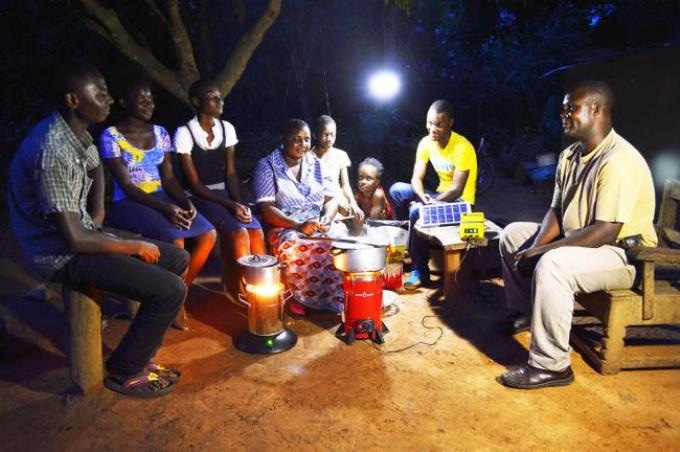Mar 19 2019
The demand for more effective energy systems based on renewable raw material across the world is an issue that cannot be easily solved.
 Bild: emerging cooking. (Image credit: Karlstad University)
Bild: emerging cooking. (Image credit: Karlstad University)
At Karlstad University, education and research are underway to discover sustainable energy systems, for example, a study that involves pellets as a substitute for charcoal in cooking solutions in Zambia, as cooking with charcoal as fuel causes health hazards and vast deforestation. Universally, increasing deaths are due to air pollution at home compared to HIV, malaria, and tuberculosis, among others.
In this study we looked at twelve different available residual products for pellet production in Zambia and how these products interact in different combinations. The study has led to the discovery of several different residual products from forestry and agriculture. Other important findings are also how the materials could be used to manufacture a product that meets the demands of production in Africa.
Stefan Frodeson, Lecturer in Environmental and Energy Systems, Karlstad University.
Residual Products Become Raw Materials for Sustainable Pellet Production
Zambia stands on top of the list of countries where extensive deforestation of ancient forests takes place. The core reason for this is the production of charcoal for heating stoves.
We cooperate in the project with the company Emerging Cooking Solutions AB, which produces pellets, and develops and sells pellet heated cooking stoves.
Jonas Berghel, Professor of Environmental and Energy Systems, Karlstad University.
Currently, the collaboration, which has been functioning for a few years and commenced as a student degree project, has produced about 20 different biomaterials from Zambia that are stored at the university.
The partnership with Emerging Cooking has been successful with two former students co-authoring this research paper, and two current students presently working on their degree project.
Jonas Berghel, Professor of Environmental and Energy Systems, Karlstad University.
Jonas Berghel is also a Program Coordinator of Master of Science in Energy and Environmental Engineering.